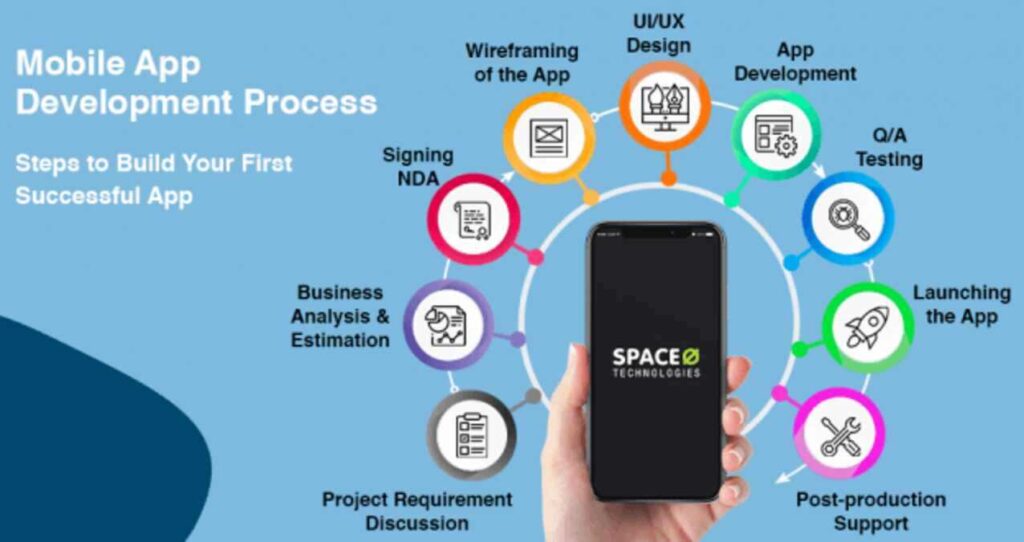RPA Robotic Process Automation in Business

RPA Robotic Process Automation, in the fast-paced landscape of modern business, efficiency, and productivity are not merely buzzwords but the cornerstone of success. Robotic Process Automation (RPA) emerges as a transformative force, revolutionizing how businesses operate, streamline processes, and ultimately gain a competitive edge in the market.
Understanding RPA Robotic Process Automation (RPA)
RPA Robotic Process Automation involves using software robots to automate repetitive and rule-based tasks within a business process. These digital assistants are designed to mimic human interaction with digital systems, executing tasks precisely and quickly. As businesses grapple with increasing data volumes and the need for real-time responses, RPA emerges as a beacon of efficiency.
The Advantages of Implementing RPA
Enhanced Efficiency and Accuracy
Uninterrupted Productivity: RPA Robotic Process Automation is an unwavering ally in pursuing continuous productivity. Unlike human counterparts, RPA operates tirelessly, 24/7, executing tasks with steadfast precision. This inherent capability ensures that mundane and repetitive tasks are performed consistently without succumbing to fatigue or introducing errors.
Strategic Resource Allocation: Businesses liberate human resources for more strategic and value-added activities by automating these routine tasks. Fueled by the shackles of repetitive work, employees can focus on tasks that demand creativity, critical thinking, and decision-making. This strategic reallocation elevates overall efficiency and enhances the accuracy of human-performed tasks.
Cost Savings
Error Minimization: RPA Robotic Process Automation’s impact on cost reduction is multi-faceted, with error minimization playing a pivotal role. Automated processes are inherently less prone to errors, ensuring that each task is executed precisely and consistently. Reducing errors directly translates to financial savings by mitigating the costly consequences of inaccuracies in various business operations.
Overtime Elimination: Implementing RPA eliminates the need for overtime in operational processes. Unlike human employees, software robots do not adhere to conventional working hours, ensuring that tasks are completed within predefined timelines without the necessity for additional labor costs. This cuts down on expenses and fosters a more balanced and sustainable work environment.
Accelerated Task Completion: RPA Robotic Process Automation efficiency is not solely about error reduction; it’s about speed. Tasks traditionally take considerable time and can be completed through automation in a fraction of that time. This acceleration in task completion enhances operational efficiency and contributes to substantial cost savings by optimizing resource utilization.

Scalability and Flexibility
Seamless Scaling: The modular architecture of RPA empowers businesses with seamless scalability. In the face of a sudden surge in workload, RPA allows organizations to scale operations effortlessly. Whether handling increased transaction volumes or expanding business processes, the adaptability of RPA ensures that businesses can meet evolving demands without compromising efficiency.
Adapting to Changing Requirements: In a dynamic market environment, businesses must navigate ever-changing requirements. RPA provides the flexibility needed to respond promptly to these changes. Whether adjusting to new regulations, incorporating process updates, or accommodating shifts in business strategies, RPA Robotic Process Automation ensures that organizations remain agile and responsive, staying ahead of the curve.
Future-Proofing Operations: RPA’s scalability and flexibility offer not just immediate solutions; they are strategic tools for future-proofing operations. As businesses grow and evolve, RPA adapts, ensuring that automation remains aligned with organizational objectives and market dynamics.
Industries Embracing RPA Robotic Process Automation
Finance and Banking
RPA is revolutionizing transaction processing, fraud detection, and compliance monitoring in the finance sector. Automated workflows ensure regulatory compliance, reduce errors in financial reporting, and enhance overall operational efficiency.
Healthcare
Streamlining administrative tasks such as appointment scheduling, billing, and claims processing benefits the healthcare industry. This not only reduces administrative burdens but also enhances the quality of patient care through improved data accuracy.
Manufacturing
RPA optimizes manufacturing processes by automating routine tasks in supply chain management, inventory tracking, and order processing. This results in reduced lead times, improved inventory accuracy, and a more responsive production cycle.
Assessment and Planning
Before implementing RPA Robotic Process Automation, a thorough assessment of existing processes is crucial. With a comprehensive plan, the integration becomes a strategic move toward operational excellence.
Selecting the Right RPA Tools
Choosing the appropriate tools is paramount to success. Leading RPA tools like UiPath, Automation Anywhere, and Blue Prism offer diverse functionalities catering to different business needs.
Training and Change Management
While it is designed for ease of use, adequate training for employees is essential. Additionally, implementing change management strategies ensures a smooth transition, fostering acceptance and collaboration between human workers and their digital counterparts.

Future Trends
Keeping abreast of emerging trends is crucial for businesses seeking sustained success in an ever-changing environment.
Cognitive RPA Robotic Process Automation
The integration of cognitive technologies, such as machine learning and natural language processing, expands RPA’s capabilities. This evolution enables robots to handle unstructured data, make decisions, and perform tasks that require a higher level of cognitive understanding.
Hyper-automation RPA Robotic Process Automation
Hyper-automation takes RPA further by combining it with artificial intelligence, machine learning, and other advanced technologies. This comprehensive approach aims to automate routine tasks and complex decision-making processes, offering businesses a holistic automation solution.
Increased Focus on Security
As it becomes more ingrained in business processes, there is a growing emphasis on ensuring the security of automated workflows. Future developments in RPA will likely include enhanced security measures, encryption protocols, and robust authentication methods.
Conclusion RPA Robotic Process Automation
Embracing RPA, Robotic Process Automation, is not just a choice; it’s a strategic imperative for businesses aiming to thrive in the digital era. The benefits are evident, from enhanced efficiency to cost savings and scalability. As industries continue to adopt and adapt to this transformative technology, the question becomes not whether to implement it but how soon.
Read more: Healthcare Technology Innovations






